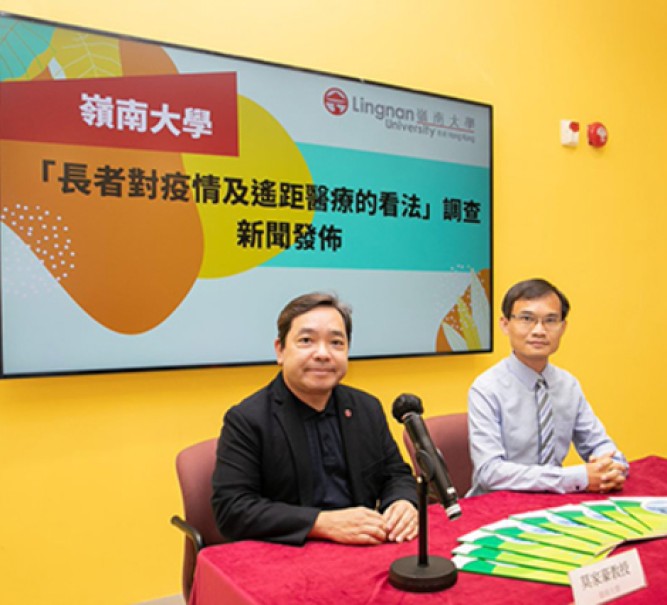LU research finds over 60% senior citizens are willing to try online medical consultations

The suspension of most of the non-emergency services at public hospitals during the COVID-19 outbreak is a source of worries to senior citizens with chronic illnesses, as they have not been able to attend scheduled medical appointments.
A recent survey conducted by the Asia-Pacific Institute of Ageing Studies (APIAS) of LU reveals that over 60 per cent of senior citizens are willing or very willing to try online medical consultations when the relevant technology is fully developed.
Photo: Prof Joshua Mok Ka-ho and Dr Huang Genghua
In addition, over 58 per cent of respondents considered they were at moderate or high risk of infection, and about 70 per cent of the elderly interviewed have paid more attention to their health conditions during the outbreak.
The research team also found that the willingness to undergo online medical consultations may vary among different groups. For instance, respondents with a tertiary or above education are more willing to try telemedicine than those with a secondary or below education (70.6% vs 55.2%). Elderly groups living in owner-occupied flats, including private housing and home ownership scheme are also more willing to use online services than their counterparts living in rental and public housing (65.7% vs 47.4%).
Prof Joshua Mok Ka-ho, Vice-President of LU, said Hong Kong is lagging behind Europe, America and Mainland China in the development of telemedicine, and that as innovation and technology are priority industries here, Hong Kong must apply new technologies to help solve problems and ease the healthcare burden imposed by the aging local population. He said the COVID-19 pandemic offers an opportunity for Hong Kong to develop telemedicine platforms in the forthcoming 5G era.


